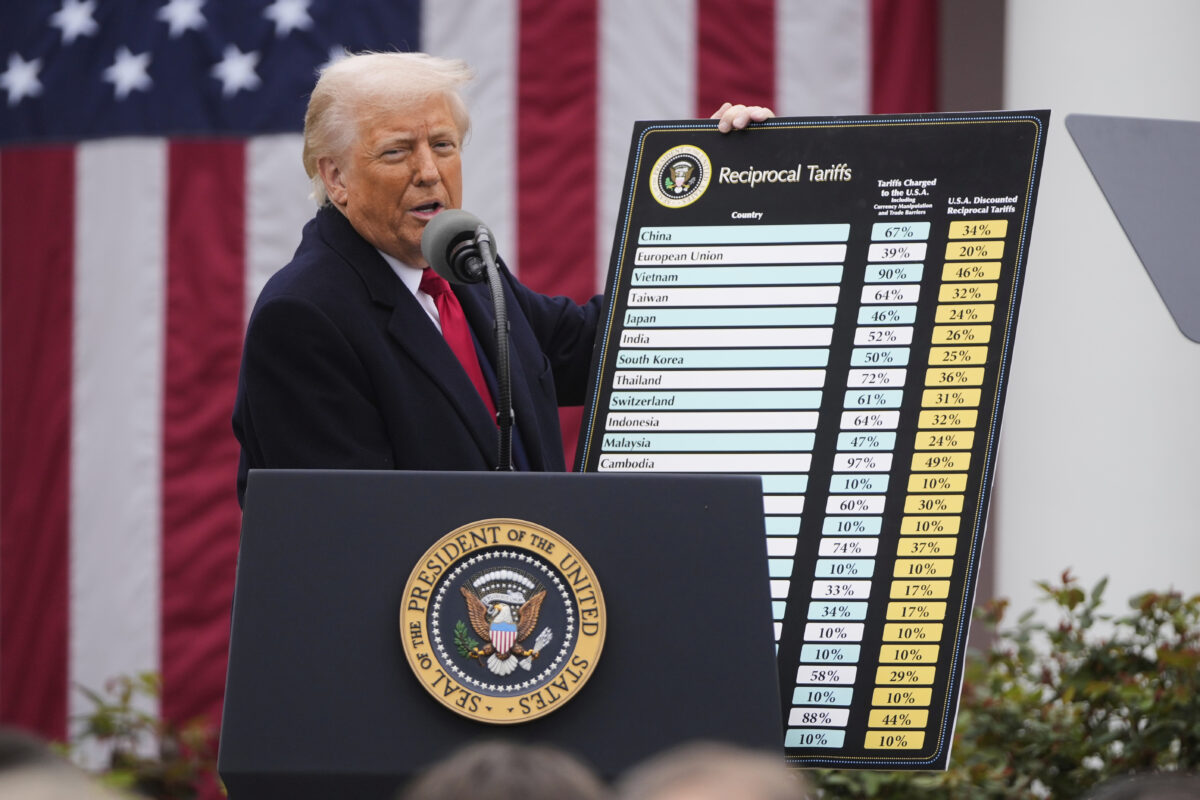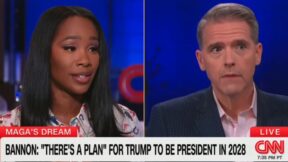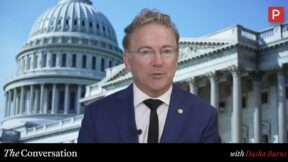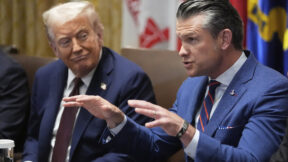The Economist Trashes Trump’s ‘Flat-Out Nonsense’ Tariffs in Scathing Editorial: Most ‘Unnecessary Economic Error in the Modern Era’

AP Photo/Mark Schiefelbein
The Economist on Thursday published a scathing editorial criticizing President Donald Trump’s sweeping tariffs on virtually all of the United States’ trade partners.
On Wednesday, Trump held an event at the White House Rose Garden where he announced a slew of tariffs he claimed will usher in the rebirth of “American industry.” The tariffs include 25% on all foreign made vehicles and a host of “reciprocal tariffs” on dozens of countries.
The reciprocal tariffs, however, have been met with scrutiny due to the questionable math and the choice of countries.
In the editorial, The Economist called the action “the most profound, harmful and unnecessary economic error in the modern era.” It continued:
Almost everything Mr. Trump said this week—on history, economics and the technicalities of trade—was utterly deluded. His reading of history is upside down. He has long glorified the high-tariff, low-income-tax era of the late-19th century. In fact, the best scholarship shows that tariffs impeded the economy back then. He has now added the bizarre claim that lifting tariffs caused the Depression of the 1930s and that the Smoot-Hawley tariffs were too late to rescue the situation. The reality is that tariffs made the Depression much worse, just as they will harm all economies today. It was the painstaking rounds of trade talks in the subsequent 80 years that lowered tariffs and helped increase prosperity.
On economics Mr. Trump’s assertions are flat-out nonsense. The president says tariffs are needed to close America’s trade deficit, which he sees as a transfer of wealth to foreigners. Yet as any of the president’s economists could have told him, this overall deficit arises because Americans choose to save less than their country invests—and, crucially, this long-running reality has not stopped its economy from outpacing the rest of the G7 for over three decades. There is no reason why his extra tariffs should eliminate the deficit. Insisting on balanced trade with every trading partner individually is bonkers—like suggesting that Texas would be richer if it insisted on balanced trade with each of the other 49 states, or asking a company to ensure that each of its suppliers is also a customer.
The early responses to the tariffs have been less than stellar. In addition to the stock market taking a severe plunge as soon as it opened the next day, Trump’s own party members have expressed concern over their impact.




